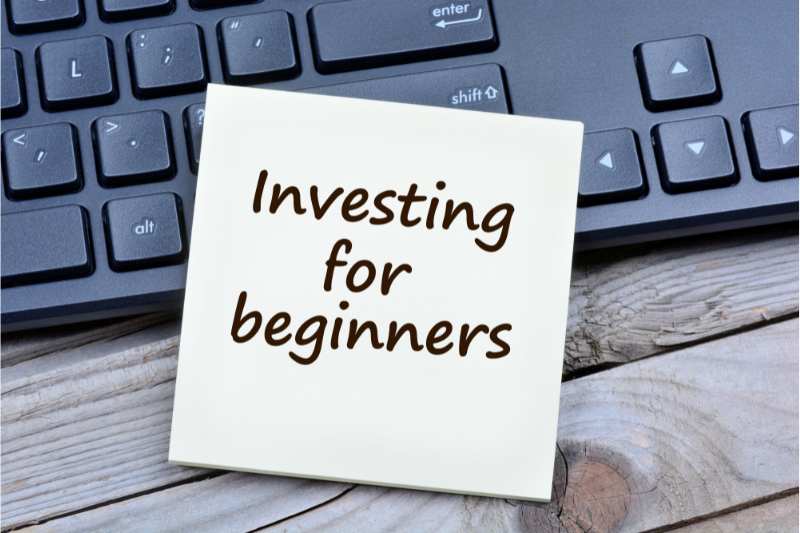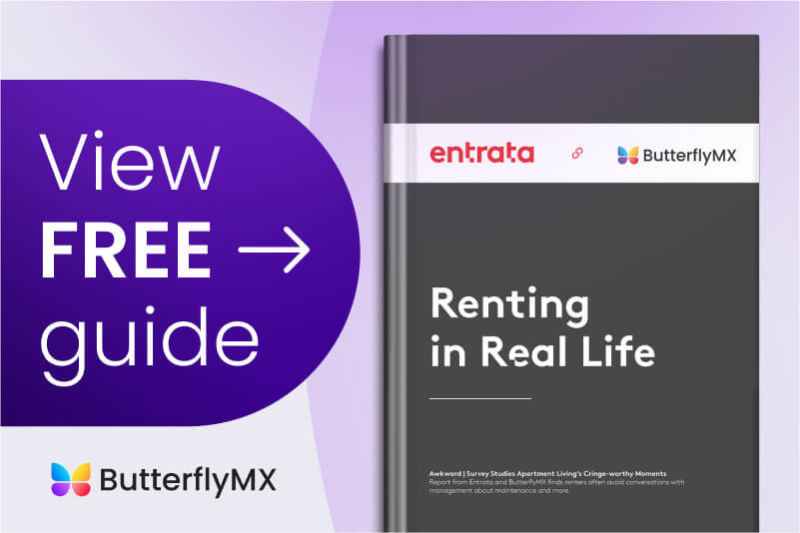
Disclaimer: This content is for informational purposes only, you should not construe any such information as legal, tax, investment, financial, or other advice. Nothing on our site constitutes a solicitation, recommendation, endorsement, or offer by ButterflyMX or any third-party service provider. ButterflyMX is not a financial adviser. You should always seek independent legal, financial, taxation, or other advice from a licensed professional.
Real estate investing for beginners can seem both demanding and challenging. However, the world of investing in real property is not as complex as it might seem. You don’t have to be good with numbers to be successful. In some cases, you won’t even need all that much start-up capital.
In this post, we’ll go over how real estate investing for beginners can be profitable. Next, we’ll cover what creative financing is and how you can start investing with no money. Finally, we’ll provide a number of tips on how to become a real estate investor.
This post covers:
- How to make money in real estate investing for beginners
- How do I start investing in real estate?
- How do I start investing in real estate with no money?
How to make money in real estate investing for beginners
When you get right down to it, actually making money from a real estate investment is relatively easy. But getting to the point that you’ve found the right investment is the tricky part.
Ways you can make money in real estate include:
- Charging rent for units in a multifamily property.
- Operating vacation rentals.
- Buying properties, renovating them, and then selling them for more than what you paid.
- Purchasing and selling contracts.
- Buying and selling valuable land.
- Developing commercial properties that host businesses and offices by leasing space from you.
Learn how to invest in multifamily real estate:
What is the 5 rule in real estate investing?
Real estate investing for beginners means becoming aware of different terms used within the industry. One of these terms is the 5 rule.
The 5 rule comes from the philosophy that you will spend 5% of a property’s total value maintaining it on a yearly basis. So before making an investment, ensure that your annual earnings on said investment will be more than 5% of the total value.
While there are a lot of variables here, this is a decent rule to consider following. However, the actual number will likely never be exactly 5%. This rule doesn’t seem to factor in the sheer number of variables that go into the cost of maintaining a property.
For example: Older properties tend to need a lot more money put into them than more recent constructions.
How do I start investing in real estate?
Beginner real estate investors can get started with any number of possible first steps. Keep in mind that the following list is in no particular order. As always, your unique financial experience and personal time management for real estate investing will heavily impact the practicality of these tips.
Four ways to start investing in real estate are:
1. Start small
Beginner real estate investors can start small, especially if you’re debating how deep you want to get into the world of real estate.
For example, apartment sharing is a simple entry point that involves listing the apartment you already pay rent for on an app such as Airbnb. Another option is purchasing a small multifamily property such as a duplex and either renting out both units or renting out one unit and living in the other. Alternatively, consider entering a fractional ownership agreement. In this case, several investors split the costs and share ownership of a real estate asset.
Investing in a rental property for beginners involves being highly aware of the costs associated with your investment. Like the 5% rule that we mentioned earlier, it’s important to make sure your profits always offset the costs of operating the investment. With that being said, the first year of owning a rental property can involve more costs than the following years will.
2. Research the market and culture
More people than ever are renting in the United States. That fact comes from researching the state of the current real estate market, and it’s something you should do frequently.
In addition to reading guides such as this one, you might want to check out alternative sources of information such as real estate investing for beginners podcasts.
Further, use predictive analytics in order to make informed predictions about the future of the market before you invest.
Studying the real estate market includes familiarizing yourself with the four real estate cycles and knowing what to do investment-wise during each of them. In addition to online research, talk to as many investors as possible, followed by realtors, mortgage brokers, property managers, and anyone related to the industry that you can find. The more people you talk with, the more accumulated knowledge you will gather that can further influence your investing decisions.
3. Know your loans
Financing is an unavoidable hurdle when it comes to real estate investing for beginners. So, familiarizing yourself with the loans available to you before you start is a sound idea.
The types of loans you will qualify for depends on your current financial situation and the type of investment you want to make.
Several useful loans include:
- Conventional loans. These usually include a 10% down payment and a 30-year mortgage.
- Short-term loans. Also known as bridge loans, these are useful when quickly flipping properties.
- Government-backed loans. These include loans from government agencies such as the FHA and VA. These loans can include first-time home buyers programs through the FHA.
If, by some circumstance, you don’t qualify for any conventional financing, then consider creative financing methods.
Keep in mind: Establishing good credit is extremely important for a beginner real estate investor.
4. Decide if you are hands-on or hands-off
Many investments require different degrees of work. For example, if you purchase a multifamily property, then that property is going to need a property manager. Either you can manage the property, or you can hire one. Hiring property managers still make for great investments, especially if you plan on investing in more than one multifamily property.
Other investments bring up similar debates. You should decide whether you want to be hands-on or hands-off before you make your purchase. Otherwise, you won’t be able to properly calculate your intended return on investment (ROI) and net operating expenses (NOE).
There are many real estate investments that merely require you to put forward capital, such as multifamily REITS and real estate syndications. In circumstances such as these, you put forward money that developers and management companies use for their properties. In return, you get a percentage of the profits. This form of real estate investment has a strong relationship to investing in the stock market.

How do I start investing in real estate with no money?
Real estate investing for beginners with no money is not as crazy as it might sound. If you have very little start-up capital, you’ll likely want to rely on a strategy known as creative financing. Creative financing entails unorthodox methods of securing financing.
These methods include:
- Partnering up with other investors to split funds.
- Consider entering into a real estate sale leaseback agreement (after consulting a broker) to quickly grow your capital.
- Asking for money from family or friends and coming up with a payment plan.
- Renting to own.
- Finding government loans that meet your unique situation (such as Veteran Affairs, Federal Affairs, and agricultural-based loans).
Crowdfunding. - Choose a real estate investment tool to guide your investment journey.
Real estate investing with no money is far from easy, but it’s doable.
Takeaways
- You can earn money from real estate investing by charging rent in various circumstances and also by selling properties for more than what you paid.
- The 5% rule indicates that you should always budget 5% of the cost of your property to maintain it annually.
- You can invest in real estate with very little money by using creative financing methods.
- Real estate investing for beginners involves starting small, studying the market, knowing which loans are best, and knowing whether to be a hands-off or hands-on investor.

